
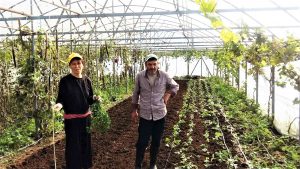 Small Business Development Project 3 is initiated and funded by bp and its partners in the Georgia Pipeline Company. The aim of the project is to deepen positive relations between bp and the population of the villages along the Baku-Supsa pipeline through creation of the opportunities to start and develop small businesses.
Small Business Development Project 3 is initiated and funded by bp and its partners in the Georgia Pipeline Company. The aim of the project is to deepen positive relations between bp and the population of the villages along the Baku-Supsa pipeline through creation of the opportunities to start and develop small businesses.
As is known, greenhouse production is an actively growing segment of agriculture and is becoming more and more relevant in the context of import substitution and farming adaptation to climate change. Quite a lot greenhouses were funded under the project, therefore it was interesting to glance over the general aspects of the development of this direction. In this regard, we talked to several beneficiaries of the project engaged in greenhouse production.
First of all, it was interesting to find out their perception on how important is business for them as a source of income. All respondents mentioned that the greenhouse became if not major, then a substantial source of income. Indeed, about 400 GEL per month is a good addition to a family budget.
One of the major advantages of small greenhouse is its flexibility. While small greenhouses cannot compete with large complexes in terms of product volume and market impact, they do have their advantages. Large greenhouses are usually focused on herbs, cucumbers and tomatoes. Therefore, small greenhouses have good prospects in the production of the products that are not interesting for large farms: eggplants, peppers, broccoli, lettuce, some varieties of tomatoes, strawberries, grapes, etc. There is always quite a high demand for these products.
Farmers say that distinguishing features of their products are natural taste and smell. The advantage is also that they do not need to store products and almost do not use the services of refrigeration companies. Their business is still family-owned, though there are times when they are helped by others, e.g. when picking herbs.
However, there are challenges, though. This applies primarily to selection of profitable seed varieties. Many beneficiaries through trial and error have come to the conclusion that it is better to combine several varieties: if one variety fail, the others will cover the losses.
It was interesting opinion of the beneficiaries on how realistic it seems to them application of such modern technologies as production on organic substrate or mineral wool, which actually doubles the yield. But all greenhouse producers pointed out that this is problematic and unprofitable first of all due to the high cost, as well as because the recommendations on plant nutrition and watering must be strictly observed, otherwise all the work done will be fruitless.
Of course, growing crops is important, but that is only half of it, the main thing is to sell it. Almost all the beneficiaries mentioned that sell products to resellers is not profitable. It is much better if they have their own place in the agricultural market and sell themselves or hire a seller. It is also advantageous to deliver products to small village stores that do not buy large batches, but instead immediately reimburse the cost of the products, in contrast with large retail chains, where waiting period can last to three months.
Importantly, almost all supported greenhouses through training and consultation came to the conclusion that it is necessary to periodically analyze irrigation water and soil for salt and element content. Ultimately, greenhouse beneficiaries believe that their businesses have all the prerequisites for successful development, especially given the growing climate risks. They thank the Small Business Development Project and its donor bp for giving them the opportunity to start and grow a profitable business and to get relevant knowledge.
This document has been produced within the framework of Small Business Development Project 3 initiated and funded by bp and its co-venturers in the Georgian Pipeline Company. The views expressed herein are those of Center for Training and Consultancy and can therefore in no way be taken to reflect the official opinion of bp and its co-venturers.




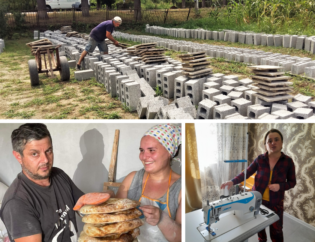


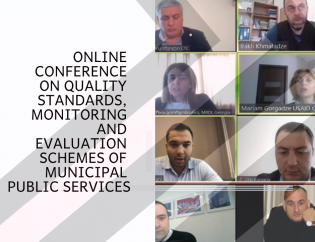

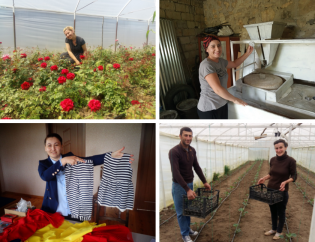
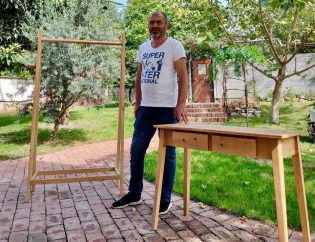
You must be logged in to post a comment.